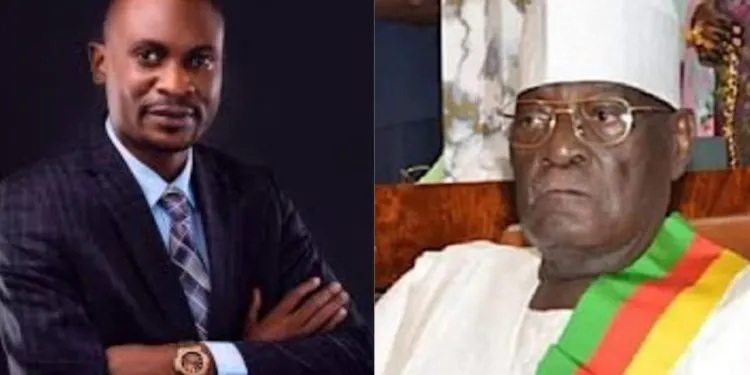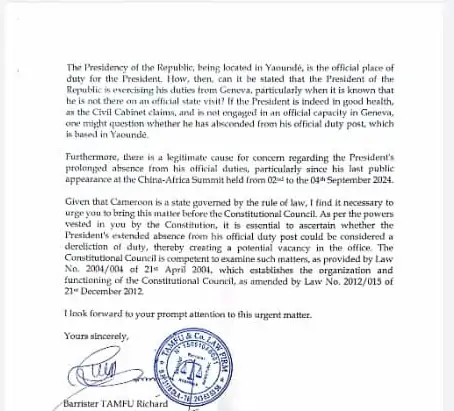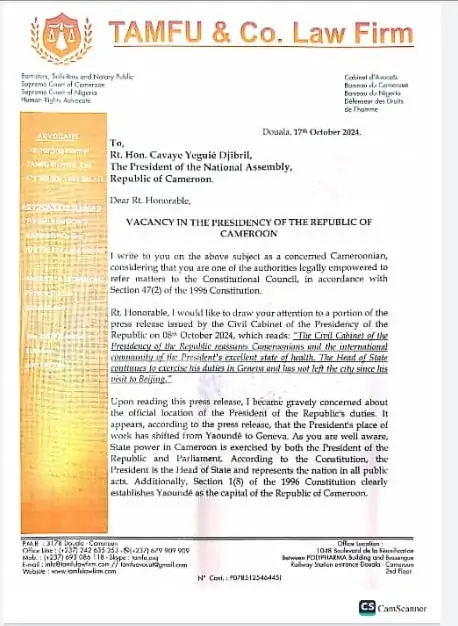Concerns regarding a potential constitutional breach over the prolonged absence of the Head of State, President Paul Biya, have been raised. In a letter addressed to the Speaker of the National Assembly, Cavaye Yeguie Djibril, human rights lawyer, Barrister Tamfu Richard, says expedient actions should be taken to fill the gap.
On October 17, 2024, the letter revisits a recent press release from the Civil Cabinet of the Presidency, stating that the Head of State took a private rest in Geneva, Switzerland, after his last public appearance on September 8.
To Barrister Tamfu, the Civil Cabinet’s release confirmed that President Biya has shifted his official base from Yaoundé to Geneva.
That press release, issued on October 9, 2024, specified that President Biya “continues to exercise his duties in Geneva”.
Constitutional Implications
According to Barrister Tamfu, this announcement has significant constitutional implications.
He argues that Article 8 of the 1996 Constitution clearly establishes Yaounde as the official capital and the seat of power of the Presidency of the Republic.
This geographic provision is critical because, as the Constitution states, the President’s duty is to execute the country’s highest office from within its designated official capital.
“If the President is indeed in good health, why is he not managing state affairs from his official base in Yaoundé?” questioned Tamfu in his letter.
The lawyer also invoked the lack of public appearances by the President since the China-Africa Summit in September, as a cause for concern, suggesting that this absence signals a disconnect between the head of state and the responsibilities entrusted to him under the Constitution.
Barrister Tamfu’s letter stresses the need to invoke Article 47(2) of the 1996 Constitution, which grants the President of the National Assembly the power to refer such matters to the Constitutional Council.
Tamfu further referenced Law No. 2004/004 of April 2004 and Law No. 2012/015 of December 21, 2012, as guiding frameworks for examining and resolving constitutional violations.
He reiterated that Cameroon governs itself by the rule of law and emphasised the urgency of addressing this issue to uphold constitutional integrity.
His demand for legal clarification on the President’s absence may just open the door to potential legal actions regarding the constitutional duties of the nation’s highest office.
Biya Crosses 45 Days Abroad
President Paul Biya left the country on September 2 for the China-Africa summit in Beijing.
He departed Beijing on September 8, the last occasion he appeared publicly, and took a brief private stay in Geneva.
He has now surpassed 45 days out of the country, his longest stay abroad since he became President in 1982.
Although the Constitution does specify how long the President should stay out of the country, Cameroonians believe 45 days is the maximum length of time their president should stay abroad.





